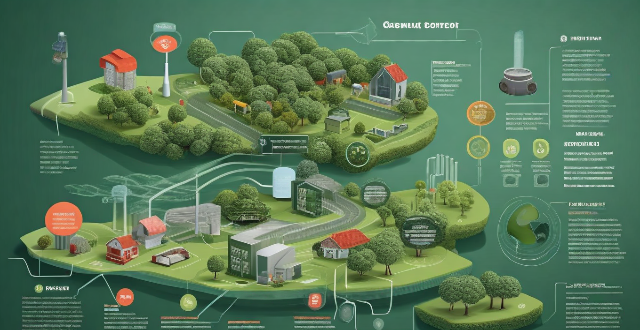Renewable energy is a key component of global efforts to reduce greenhouse gas emissions and mitigate climate change, contributing to environmental protection, economic prosperity, and social well-being. It reduces carbon footprint, enhances energy security, stimulates economic growth, improves public health, supports sustainable development, advances technology and innovation, and contributes to international cooperation. The transition to renewable energy is crucial for meeting climate commitments and ensuring a sustainable future.

The Role of Renewable Energy in Achieving Climate Commitments
Renewable energy plays a critical role in achieving climate commitments. It is a key component of the global effort to reduce greenhouse gas emissions and mitigate the effects of climate change. Here are some ways in which renewable energy contributes to these goals:
1. Reducing Greenhouse Gas Emissions
- Renewable energy sources, such as solar, wind, hydro, and geothermal power, produce little to no greenhouse gas emissions during operation.
- By displacing fossil fuels, renewable energy reduces the overall carbon footprint of energy production.
2. Enhancing Energy Security
- Renewable energy sources are often locally available, reducing dependence on imported fuels.
- Decentralized generation through renewables can make energy systems more resilient to disruptions.
3. Stimulating Economic Growth
- Investment in renewable energy infrastructure creates jobs and stimulates economic activity.
- Innovation in renewable technologies can lead to new industries and markets.
4. Improving Public Health
- Renewable energy reduces air pollution associated with burning fossil fuels, improving respiratory health.
- Cleaner energy production also means less environmental degradation from mining and drilling activities.
5. Supporting Sustainable Development
- Renewable energy projects can be designed to provide energy access to remote or underserved communities.
- These projects often have social and economic benefits that extend beyond just energy provision.
6. Advancing Technology and Innovation
- As demand for renewable energy grows, so does investment in research and development.
- This drives down costs and improves efficiency, making renewables increasingly competitive with traditional energy sources.
7. Contributing to International Cooperation
- Many countries have made commitments under the Paris Agreement to reduce their greenhouse gas emissions.
- Collaboration on renewable energy technology and policy helps nations work together towards these shared goals.
In conclusion, renewable energy is not just an alternative to fossil fuels; it is an essential tool for achieving climate commitments across multiple dimensions, including environmental protection, economic prosperity, and social well-being. The transition to a renewable energy future is crucial for meeting the ambitious targets set by international agreements like the Paris Agreement and for ensuring a sustainable world for future generations.